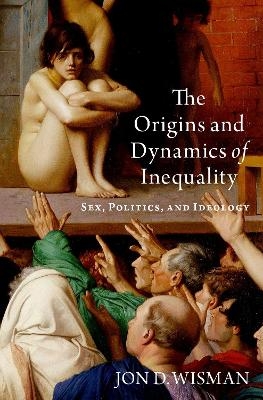
The Origins and Dynamics of Inequality
Oxford University Press Inc (Verlag)
978-0-19-757594-9 (ISBN)
Argues that the struggle over income, wealth, status and privilege-inequality-has been the principal, defining issue in human history and provides a novel framework for understanding inequality today
Whereas President Barack Obama declared inequality as the defining issue of our time, in The Origins and Dynamics of Inequality, Jon D. Wisman claims more: it is the defining issue of all human history. The struggle over inequality has been the underlying force driving human history's unfolding. Drawing on the dynamics of inequality, Wisman re-interprets economic history and society. Beyond according inequality the central role in history, this book is novel in two other respects: First, transcending the general failure of social scientists and historians to anchor their work in explicit theories of human behaviour, this book grounds the origins and dynamics of inequality in evolutionary psychology, or more specifically, Darwin's theory of sexual selection. Second, this book accords central importance to ideology in legitimating inequality, a role typically inadequately addressed by social scientists and historians. Because of the central role of inequality in history, inequality's explosion over the past forty years has not been an anomaly. It is a return to the political dynamics by which elites have, since the rise of the state, taken practically everything for themselves, leaving all others with little more than the means with which to survive. Due to elites' persuasive ideology, even after workers in advanced capitalist countries gained the franchise to become the overwhelming majority of voters, inequality continued to increase.
Sweeping and provocative, Jon D. Wisman presents a fresh perspective on why economic inequality exists and how its dynamics have shaped human history.
Jon D. Wisman is Professor of Economics at American University in Washington, D.C. He served as President of the Association for Social Economics in 2002 and has twice been selected by American University as the Outstanding Teacher of the Year. He was also a recipient of the 2023 Veblen-Commons Award, in recognition of his significant contributions to the evolutionary institutional economics.
Preface
Acknowledgments
Chapter One: Introduction: Inequality, Sex, Politics, and Ideology
Chapter Two: Blame it on Sex
Chapter Three: From Aboriginal Equality to Limited and Unstable Inequality
Chapter Four: The Dynamics of Religious Legitimation
Chapter Five: The State, Civilization, and Extreme Inequality
Chapter Six: The Critical Break: The Bourgeiosie Unchained
Chapter Seven: Theological Revolution and the Idea of Equality
Chapter Eight: The Shift Toward Secular Ideology
Chapter Nine: Workers Gain Formal Political Power
Chapter Ten: From American Exceptionalism to the Great Compression
Chapter Eleven: Simon Kuznets' Happy Prognosis Crushed in an Ideological Coup
Chapter Twelve: Inequality, Conspicuos Consumption, and the Growth Trap
Chapter Thirteen: The Problem is Inequality, not Private Property and Markets
Chapter Fourteen: What Future for Inequality?
Bibliography
Index
| Erscheinungsdatum | 11.06.2022 |
|---|---|
| Verlagsort | New York |
| Sprache | englisch |
| Maße | 238 x 165 mm |
| Gewicht | 866 g |
| Themenwelt | Geschichte ► Teilgebiete der Geschichte ► Wirtschaftsgeschichte |
| Naturwissenschaften ► Biologie ► Humanbiologie | |
| Sozialwissenschaften ► Soziologie | |
| Wirtschaft ► Allgemeines / Lexika | |
| ISBN-10 | 0-19-757594-3 / 0197575943 |
| ISBN-13 | 978-0-19-757594-9 / 9780197575949 |
| Zustand | Neuware |
| Informationen gemäß Produktsicherheitsverordnung (GPSR) | |
| Haben Sie eine Frage zum Produkt? |
aus dem Bereich


